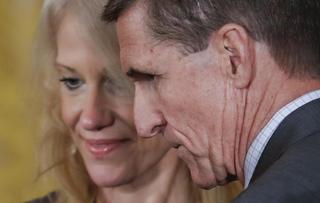The resignation last night of National Security Adviser Michael Flynn, following a controversy over his disputed pre-inauguration contacts with the Russian Ambassador, has sent an already anxious national media into overdrive. As insinuations of Russian blackmail, deliberate misleading of the public, and Logan Act violations fill the airwaves, it is important to take stock of what we do and don't know about Flynn's resignation—and what it might tell us about the Trump Administration's policy toward Russia.
First, it is not at all clear that this is a story of skeevy dealings with Russia laid bare by courageous leakers, nor does it substantiate the self-serving Democratic narrative that Putin, knowing he has incriminating evidence on Trump, cleverly engineered to throw the election to Trump. Nonetheless, that is how this is going to play among a certain group of Democrats, feeding the flames of moonbat moral certainty.
The more likely reality in the Flynn case is simpler: Flynn was, as almost everyone serious understood from the beginning, the wrong man for the NSC job. This is a job that, no matter what the Administration's policies are, requires a cool-headed person committed to making the interagency process work so that a) as much as possible is decided without direct Presidential input, and b) where a Presidential decision is necessary, the President has the tools he needs to make the best possible decision. To do this, the NSC has to bring strong-willed people from different institutions into a process that, by its nature, is often very contentious. This works if and only if the various participants trust the process and trust the NSA.
Read Full Article »



